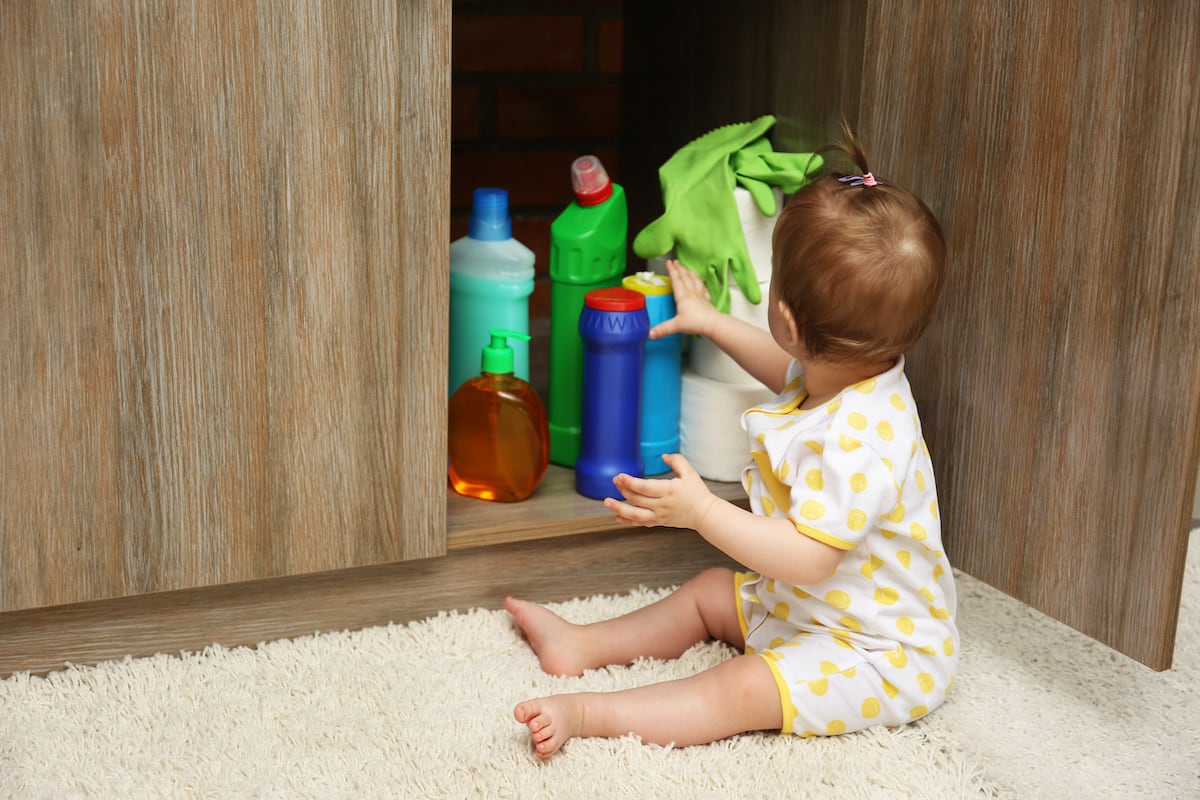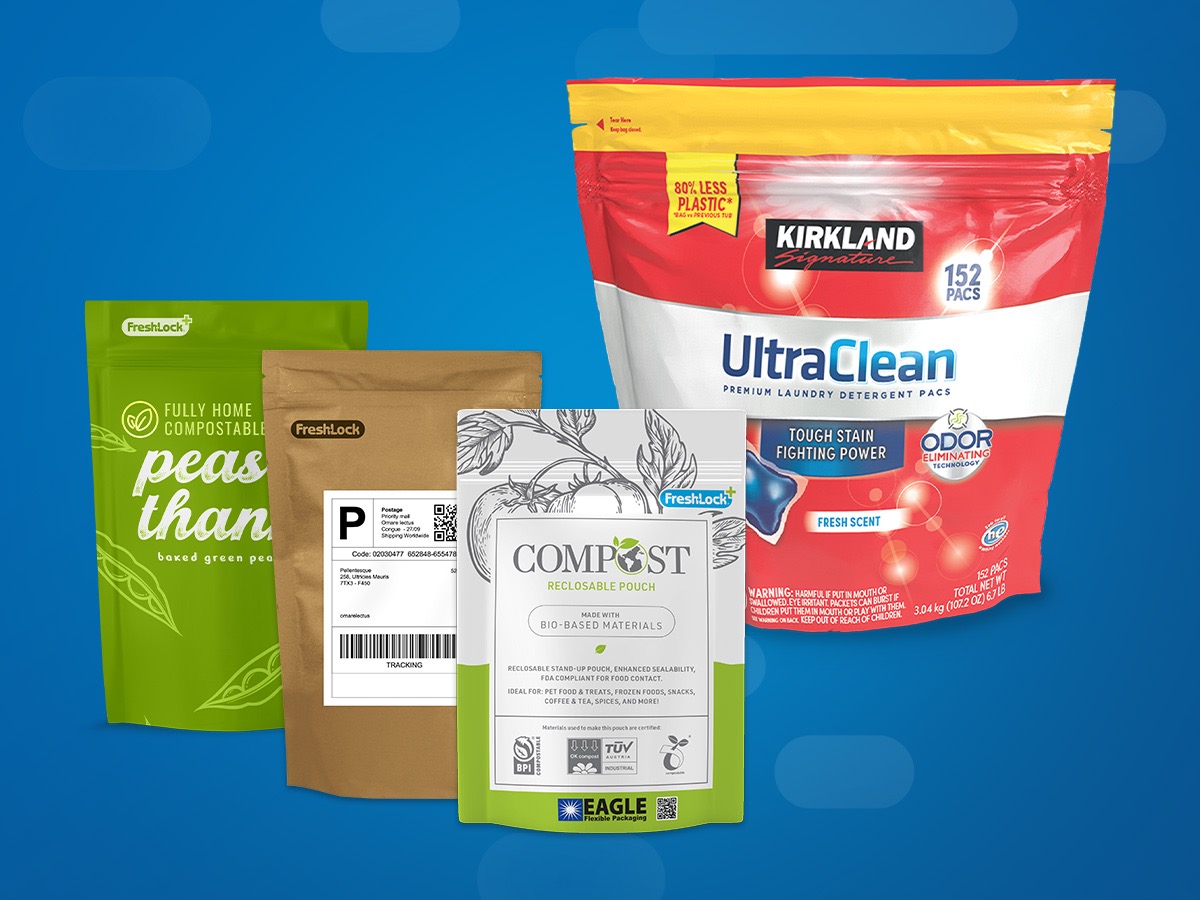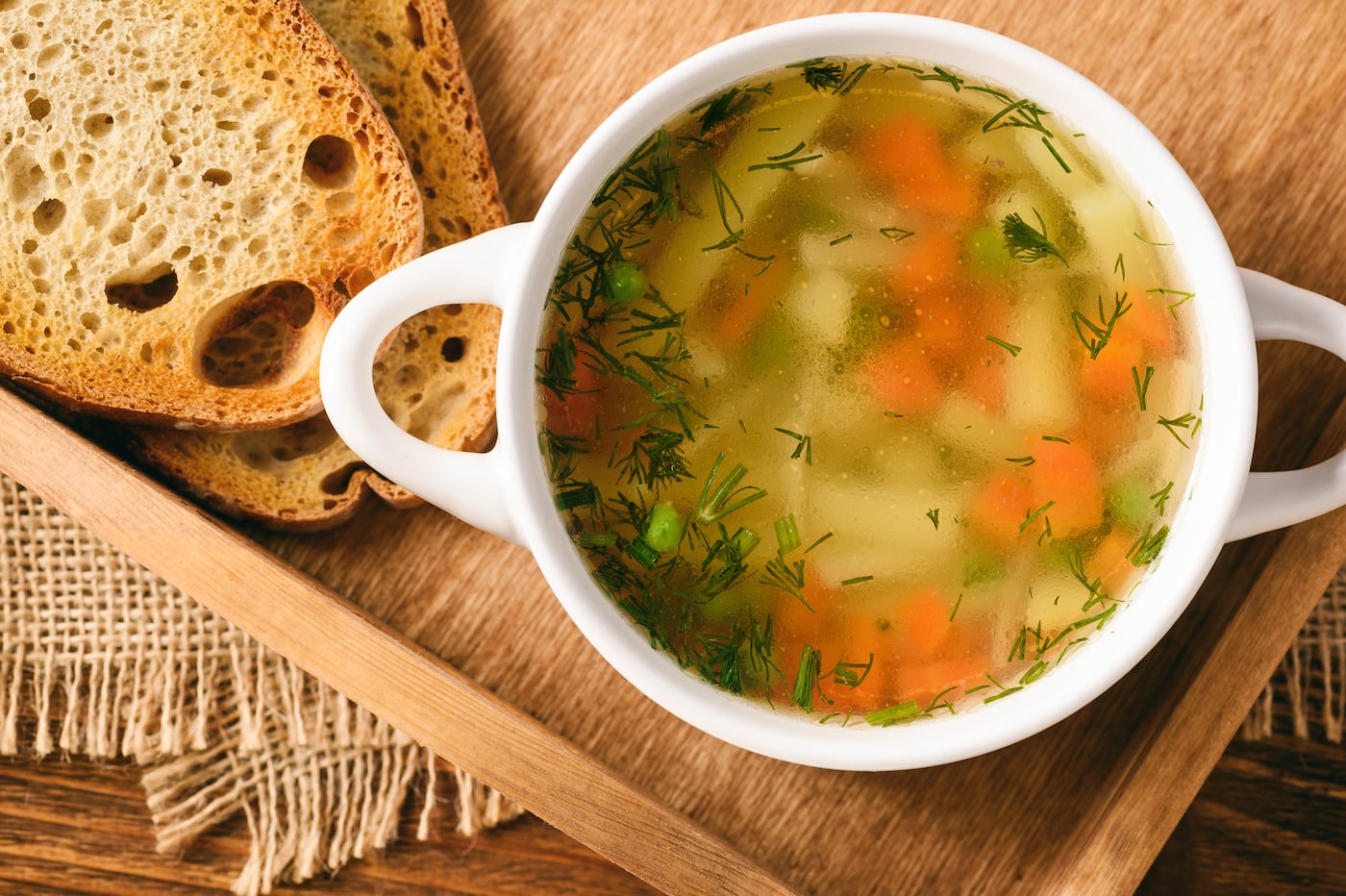
Unpacking the Claim: What Qualifies as Child-Resistant Packaging?
Evolution of Child-Resistant Flexible Packaging
The evolution of child resistance has transformed the way products are being packaged to help keep young children safe from potentially harmful substances.
In 1960, the Food and Drug Administration (FDA) along with the American Medical Association (AMA) drafted legislation requiring cautionary labeling on hazardous products. In the United States, unintentional poisonings among young children became such an important issue that the government had to act.
While the labels warned parents of the dangers, the labeling did not help keep kids out, especially young children who were unable to read. In 1970, congress passed the Poison Prevention Packaging Act (PPPA), requiring child-resistant packaging for prescription medications, most over-the-counter (OTC) drugs, as well as a variety of household chemicals and hazardous materials.
Since then, flexible packaging has evolved and with the help of innovations in child-resistant closures, pouches are increasingly displacing rigid formats while maintaining performance and functionality and reducing the amount of packaging. Sustainability has become a priority for many brands and manufacturers are seeking to provide recycle-ready options with a child-resistant feature while finding ways to help reduce the package’s carbon footprint. As the industry continues to innovate child-resistant flexible packaging, there are many child-resistant packaging types that consumers still commonly experience.
Child-Resistant Packaging Types
Safety Caps
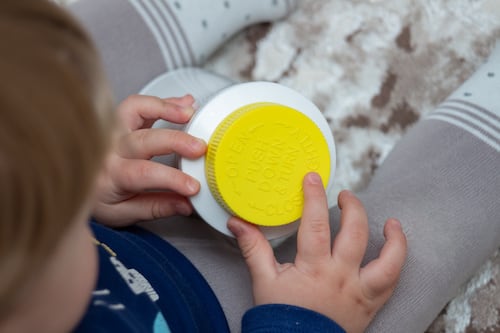
For years, child safety caps were the main solution for child-resistant packaging. However, the types of packaging available to CPGs have changed. Child-resistant caps can work for vials and bottles; but what about medicine delivered in other types of packaging?
Blister Packs
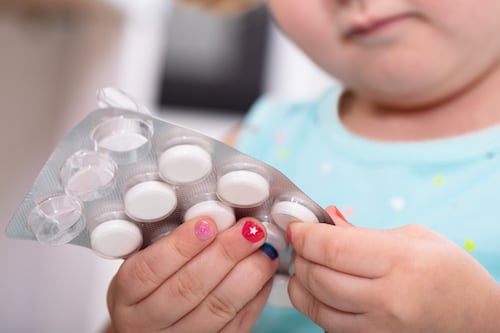
When manufactured with the right materials, blister packs can deter children from accessing drugs that could cause them harm. They also add convenience by dividing the product into single doses and protecting the product from any exterior elements.
As an extra layer of protection for products using blister packs, some packaging manufacturers are also offering cardboard cartons that are tear-resistant while the blister packs have notches that hook onto the carton. The packaging requires an additional step to remove the blister pack from the carton.
Aerosol Cans
Aerosol spray cans often contain hazardous chemicals, which is why some manufacturers include child-resistant closures. Packaging options include twist-and-lock tops for products such as spray paint. However, many of those products are not necessarily being marketed as child-resistant. Rather, the brands describe the feature’s intent as preventing accidental spraying.
More complex devices for aerosol cans involve requiring the user to remove the cap and re-attach it to either the bottom or top of the can in order to operate the spray nozzle.
Child-Guard® Slider and Child-Resistant Zipper
In 2015, the Fresh-Lock team developed Child-Guard® Track & Slider—designed to be used on flexible pouches. The Child-Guard® Track & Slider is difficult enough to keep young children from opening, yet intuitive enough for adults to operate. To make a child-resistant closure effective for flexible packaging applications, it needed to be simple for pouch converters and manufacturers to add to a pouch.
Since then, Fresh-Lock® Child-Resistant Zippers have also been created to play an important role in helping prevent product accidents with young children. They can be used for smaller pouch options such as dose unit packaging or over-the-counter medications. Blending the best of both features—safety and sustainability—these press to close child-resistant zippers include sustainable options made from either 100% fully recyclable or compostable materials.
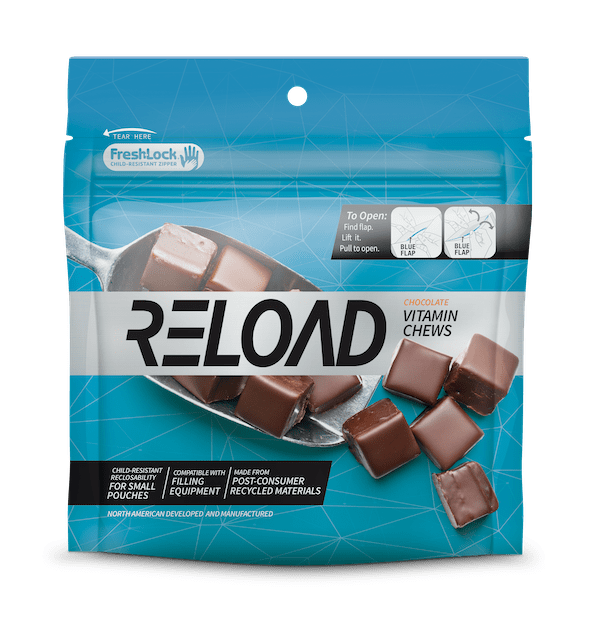
Ensuring the effectiveness of child-resistant packaging is not a simple task. It takes specific requirements and rigorous testing to prove the safety and protection for young children against potentially harmful substances.
Qualifications for Child-Resistant Packaging
Child-Resistant Packaging Test
To be deemed child-resistant, packaging needs to be tested by specified methods to ensure its safety and effectiveness. Per EPA’s child-resistant packaging (CRP) standards, a package
“must resist entry by most young children and must not be difficult for most adults to open and properly resecure, within a specified time period in testing.”
The test consists of giving children ages 42-51 months five minutes to open the package. If they are unable to do so, the tester demonstrates how to open the package. If they have not tried using their teeth to open the package, they are told they may do so and then given another five minutes to attempt opening it.
The child-resistant effectiveness is determined if more than 85% of children cannot open the package without a demonstration and more than 80% with a demonstration. There are international standards that describe testing protocols to validate the effectiveness of child-resistant packaging. These are the international standards described in ISO8317:2015.
Packaging must also be tested by senior adults ages 50-70 years. 90% of seniors need to be able to open a child-resistant package within a five-minute timeframe and close the package so that it is child resistant again.
As product packaging continues to be modified for child safety, there are many terms and definitions for various types of child-related packaging; it’s important to understand the differences.
Understanding Common Child-Related Packaging Claims
Child-Proof Packaging
You might see this term being used, but it should not be used to describe any type of package because truly child-proof packaging doesn’t exist. There’s never a 100 percent guarantee any type of packaging will keep a child out.
Child-Deterrent Packaging
The term child-deterrent packaging is a broad way to describe packaging meant to discourage young children from opening it, but it has not undergone formal testing for child resistance.
This phrase may also be used to describe packaging for products that are not under any regulations requiring child-resistant packaging, but still make packaging a step harder to open.
Child-Resistant Packaging
This term implies special packaging specifically designed and constructed with the goal of reducing the risk of children ingesting possibly unsafe items by creating an additional barrier for protection.
Child-resistant packaging is defined in the PPPA as “significantly difficult for children under five years of age to open or obtain a toxic or harmful amount of the substance contained therein within a reasonable time and not difficult for normal adults to use properly.” The requirements for child-resistant packaging are outlined in Code of Federal Regulations Title 16 (CFR-16 Part 1700).
How to Open a Child-Resistant Closure
Child-resistant closures need to protect the contents inside and, more importantly, protect the children trying to open them.
Watch a demonstration on how to open a Child-Guard® Slider and a Fresh-Lock® Style 8511 Child-Resistant Zipper:
Case Study: Kirkland Signature® Child-Resistant Package
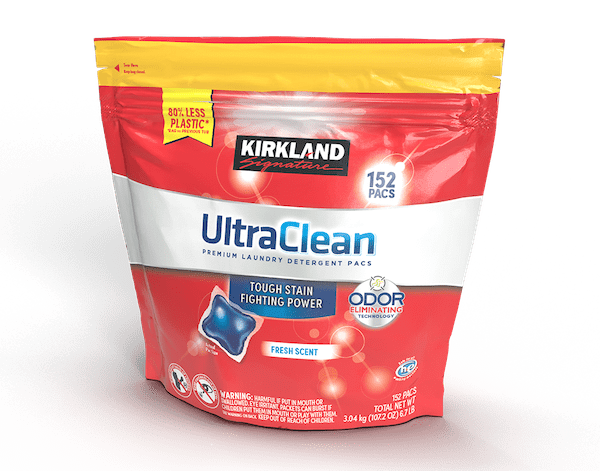
To properly create child-resistant flexible packaging, ongoing collaboration between film and converting partners is recommended. It’s crucial that the entire package is child-resistant versus only the closure or package opening. Helping protect young children from dangerous substances takes a team of industry experts.
In collaboration with partners throughout the flexible packaging industry, the Fresh-Lock team helped transform Kirkland Signature® Ultra Clean Premium Laundry Detergent Pacs packaging from a rigid tub to a fully recyclable, child-resistant flexible pouch. The brand aimed to reduce their carbon footprint while ensuring its new packaging was fully recyclable with a child-resistant reclosable feature.
This award-winning collaboration led to a whole new outlook for brands to realize the many benefits of flexible packaging for a potentially harmful product.
New Child-Guard® Product
Child-resistant packaging is continuing to grow in the flexible space, as are the types of products that will need to be child-resistant in the future. Flexibles can also help reduce the amount of packaging through rightsizing, while ensuring brands are aligned with sustainability efforts.
The Fresh-Lock team is working on a new innovation for child-resistance. It is part of the design criteria meant to enhance the experience with a lower mass material and higher performance—including those with dexterity issues to open a child-resistant package. In development, we’re also focused on manufacturing a mono-material format for recyclability and reducing the overall footprint of the closure.
Ready for Child-Resistant Closures?
Brands in the child-resistant market should be disruptive with their packaging formats. For example, nutraceutical or prescription pharmaceutical products can stand out from the competition by making the switch from rigid to flexible packaging while remaining safe and effective with child-resistant closures.
The Fresh-Lock team is committed to helping improve child safety through flexible packaging. Partner with us to learn more about how you can add child-resistant features to your brand’s product packaging today.

 Back to Blog
Back to Blog